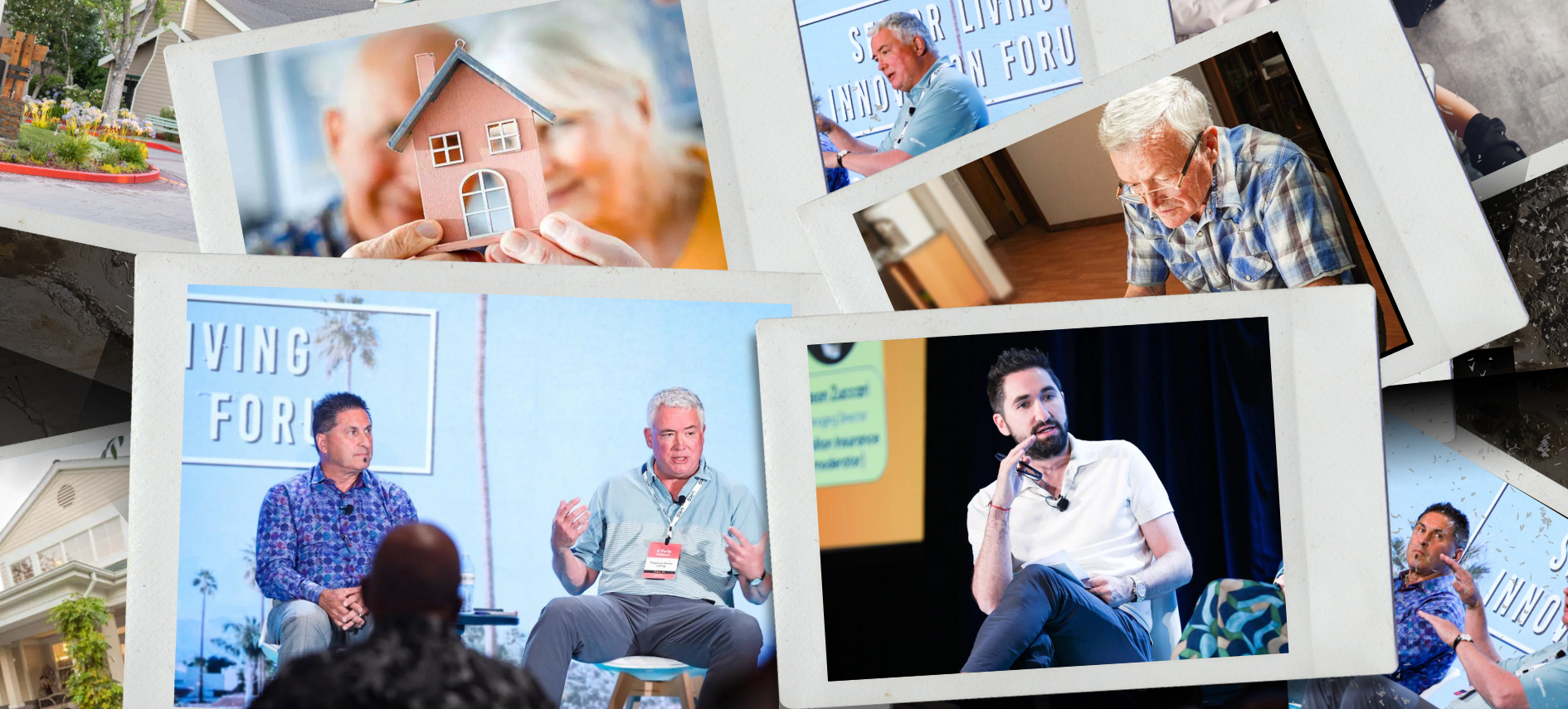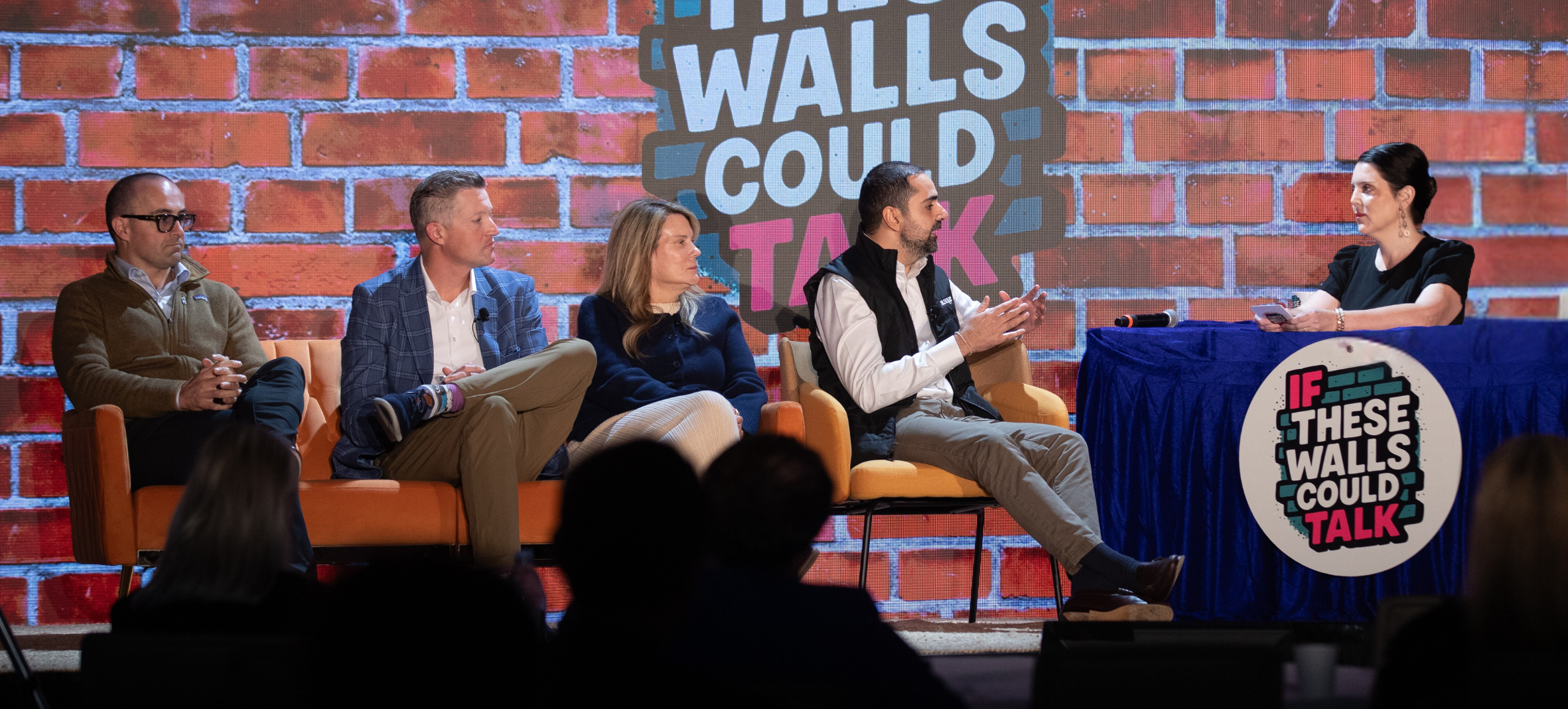At the recent Senior Living Innovation Forum, industry leaders pulled no punches in a candid discussion about the current state of the sector. The discussion, moderated by Jason Zuccari from Hamilton Insurance, featured Chris Hollister, CEO of Pegasus Senior Living; David Eskenazy, CEO of Cogir US; and Doris Sullivan, who was CEO of Retirement Unlimited at the time of the discussion. Their conversation revealed both the challenges and opportunities facing the industry.
The Elusive Middle Market
The panelists agreed that serving the middle market remains a significant challenge. Chris Hollister didn't mince words, describing it as "a bit of a unicorn" and "kind of imaginary without some sort of reimbursement." He pointed out the stark reality: "If we consider an annual income of $70,000 to $100,000 as broadly middle market, how can these individuals afford $50,000 to $60,000 a year for senior living?"
David Eskenazy echoed this sentiment, highlighting the increasing costs and pressure from capital partners. He candidly stated, "It's hard for me to imagine you can then put a number on top of it to give us the adequate profit margins to be able to satisfy what a Middle Market can really pay."
Doris Sullivan added, "From our acquisitions, we've moved into the Middle Market, and it's very difficult. I think that there are expectations and entitlement no matter what you're paying."
Senior Care vs. Senior Living
In discussing these challenges, Chris Hollister set himself apart by distinguishing his approach: "I'm in the senior care business, which is different from Senior Living." He emphasized that Pegasus isn't focused on lifestyle amenities like pickleball or Margaritaville-style living, but rather on providing essential care services. This distinction underscores the diverse approaches within the industry to meeting seniors' needs.
 David Eskenazy (Left) CEO – Cogir USA & Chris Hollister CEO – Pegasus Senior Living
David Eskenazy (Left) CEO – Cogir USA & Chris Hollister CEO – Pegasus Senior Living
Labor Challenges and Innovative Solutions
Labor issues continue to be a top concern. Sullivan shared innovative approaches to recruitment, including partnering with Argentina for J1 visas and collaborating with community colleges to accelerate LPN training. She also highlighted their focus on attracting Gen Z workers by emphasizing sustainability initiatives.
Chris Hollister described a data-driven "Moneyball" approach to hiring executive directors, using multiple assessment tools to predict success. He provocatively stated, "Everybody thinks they are good at interviewing. We all suck at interviewing; you just get deceived by people talking."
Dave Eskenazy didn't hold back in describing the challenges of the labor model: "For every thousand customers we have, we have about 600 employees. The labor model is mind-blowing."
Ancillary Revenue Streams
To combat shrinking margins, operators are exploring ancillary revenue sources. Sullivan mentioned challenging executive directors to generate 10% of their revenue from ancillary services, such as liquor sales. She also highlighted RUI's creation of in-house salon services, including cosmetology offerings.
 Jason Zuccari (Moderator) - Hamilton Insurance Agency
Jason Zuccari (Moderator) - Hamilton Insurance Agency
The Role of AI and Technology
David Eskenazy spoke enthusiastically about the potential of AI in senior living while acknowledging potential concerns: "I know it sounds creepy, but everything sounded creepy when it first came out." He envisioned AI-powered cameras that could monitor residents' behavior patterns, potentially improving care and engagement. However, he emphasized that the human factor will always be irreplaceable in creating a vibrant community atmosphere.
Future Outlook and Industry Challenges
Despite current challenges, the panelists remained cautiously optimistic about the industry's future. Eskenazy predicted a "bright future" if operators can adapt to changing customer preferences, stating, "We can double once again how many people are willing to come into our industry and live in our industry."
Hollister stressed the importance of careful market analysis to avoid overbuilding, offering a stark warning: "Please don't go build in Atlanta. Talk to me. I'll buy you a bottle of whiskey, and we can talk about it. It's overbuilt."
Sullivan highlighted the need to anticipate future resident needs in new developments, saying, "We're trying to do that now with a building that's going to open up in 24 months and try to anticipate what that long term is so we don't build a building and then have to remodel it in five years."
Quality Care is Non-Negotiable
All panelists emphasized that quality care remains at the heart of their operations. As Sullivan put it, "If the clinical and the care is there, the financial will follow."
As the senior living industry navigates these challenges and opportunities, it's clear that innovation, adaptability, and a focus on quality care will be key to success in the coming years. The frank discussion among these industry leaders highlights the complexity of the issues at hand and the need for creative solutions to ensure the industry's continued growth and success.
You can watch the full discussion 👇👇

Posted by
SLIF heads to Carlsbad!
The One of a Kind Retreat for Senior Housing Leaders.
May 31 - June 2, 2026 | Carlsbad, CA
Learn More









Comments